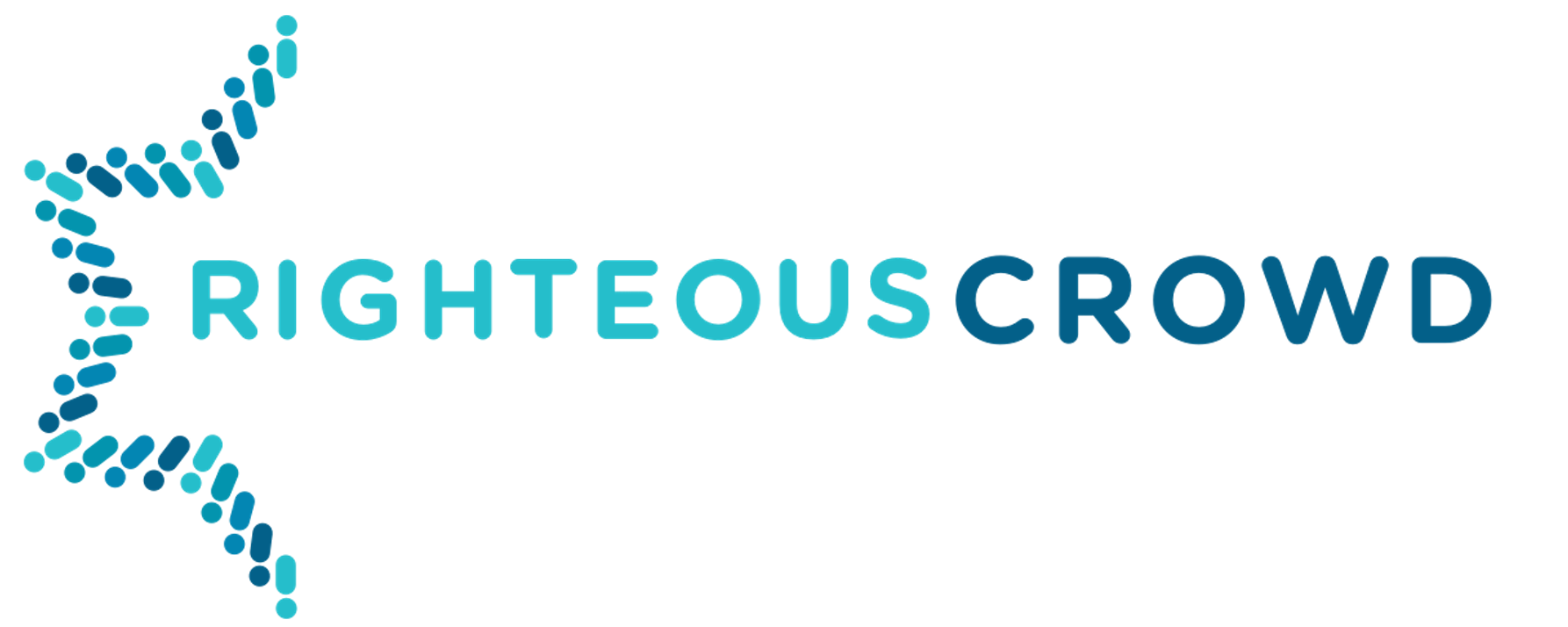Center for Women's Justice is the Righteous Crowd Org of the Week!
Center for Women's Justice (CWJ)
Protecting Women's Rights in Israel
In this week’s Torah Portion, Pinchas, the five daughters of Zelophechad speak out against injustice. The law of the time stated that only sons could inherit their fathers’ land. The daughters succeed in changing the law and secure their inheritance. Inspired by daughters Mahlah, Noa, Hoglah, Milcah and Tirzah, we are featuring an organization that fights for women’s equality in Israel.
Read our interview below with CWJ's Founder and Executive Director, Dr. Susan Weiss.
What is the mission of CWJ?
CWJ's mission is to champion Jewish women’s rights to equality, dignity and justice whenever they are compromised by state-backed religious institutions in Israel. Our strategy is to try and effect systemic social change by: filing precedent-setting lawsuits; engaging traditional and social media to reframe the public discourse; advocating in the Knesset and submitting legal opinions regarding proposed legislation; and drafting preemptive prenuptial and postnuptial agreements.
What’s a story about CWJ that is meaningful to you?
One of the most meaningful to me is that of the first agunah (a woman who is stuck in a marriage because her husband refuses to give a Jewish divorce). I was able to free her using the method pioneered by CWJ of suing recalcitrant husbands to pay damages in civil court. The woman had been chained in her marriage for 11 years, with no exit in sight. She is a vibrant, funny woman with five children who had been married off at the age of 19 to a deeply troubled man who came from a prominent rabbinic family. After we filed for damages, all of a sudden, he agreed to a divorce and she was free. A few years later, I danced at her wedding. Her case was symbolic of cases to come, and the power of law at its best to catalyze social change.
How would you connect your organization to a Jewish value?
Our legal work requires us to have a deep and sophisticated understanding of Jewish halakhic texts: our work experience requires us to be involved with people who plan to marry or divorce in Jewish ceremonies, and above all, our values are the Torah values of pursuing righteousness— "צדק צדק תרדוף Tzedek, tzedek, tirdof. Justice, justice, you shall pursue."
Why did you decide to start CWJ?
I decided to start CWJ after years of working as a divorce attorney in Israel, first in private practice and later as founder and director of Yad Lisha-an NGO that provides legal aid to women chained to their failed marriages by their husbands’ refusal grant a Jewish bill of divorce (agunot). Slowly, I began to realize that solving the problem of individual women was not enough. I wanted to affect systemic change so that no woman would ever become an agunah. And I also began to realize that the problems facing Jewish women in Israel as a result of the state's entanglement with religion were broader than "just" the problem of the agunah. I wanted to address those issues too, for example— women whose children were born as a result of "illicit" relations (mamzer) and were blacklisted by the state; divorced women suspected of adultery (noafot) and denied the right to marry their partners by the state; women converts who wanted to marry or divorce and whose Jewish status was being questioned by state religious authorities; women denied full access to state religious services; women segregated in the public sphere.
Who or what has inspired you in the work that you are doing?
On a philosophical level, I’ve been inspired by feminist theory, critical legal theory, political theory, and the work of cultural anthropologists. Dr. Susan Aaronoff from New York City and Sharon Shenhav from Jerusalem, are both contemporary pioneers in agunah activism who have inspired my work, in particular when I began my journey in tikkun olam.
What's the best part of your job and why?
There are a lot of great things. I love the dedicated women I work with, as well as the women I have been able to help get a new start on life. But perhaps the best thing about my work is being an agent of change at this critical point in Israel’s history as it attempts to reimagine and construct a state that is both Jewish and democratic. I feel privileged to have work that is so deeply meaningful, working on issues that I think are important for all Jews, in Israel and the Diaspora.
What are some non-monetary ways for others to get involved in your organization or cause?|
Sign our prenups. Or, if you’re already married, consider signing one of our postnups – or telling your friends to sign. If you live in Israel, we’d also be happy if you want to come to the office or to one of our community lectures so that we can explain the different options to you. Or check out our website where we give in-depth explanations, in Hebrew and English, or those documents. I know it might not be as exciting as deciding upon the color of the flowers, but I see the CWJ Prenup should be as an integral part of Jewish wedding planning.
To learn more about CWJ visit https://www.cwj.org.il/en

